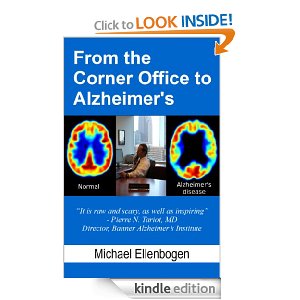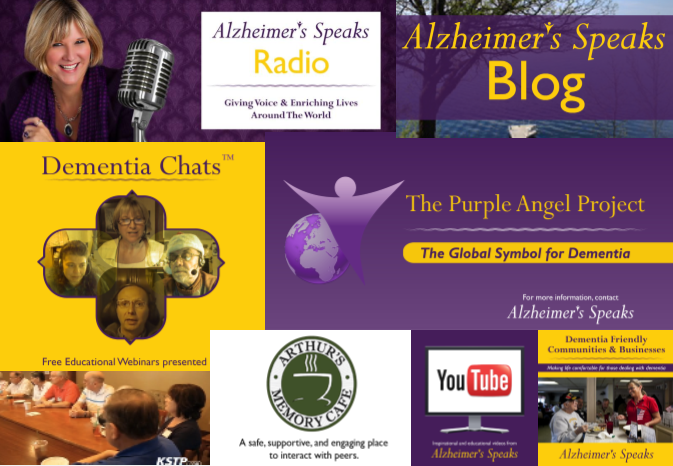Still Alice Movie Review by Michael Ellenbogen Who Is Living With Dementia
Still Alice Movie Review
by Michael Ellenbogen
Who Is Living With Dementia
 After about 25 years I just saw my first movie. Still Alice
After about 25 years I just saw my first movie. Still Alice
I must say I was very surprised that they did a great job of what it’s like to live with Alzheimer. I also like that it had some well known actors taking part in it. While I have heard from many on how depressing this movie is I can assure you from my shoes it put a simple way of looking at it as it is by far worse than people are seeing. Only so much you can show in 2 hours. I do believe this will hit home with the audience. I just hope the audience is just not people in my own circle.
What I did not like is that they were referring to the familial form of AD. While that is a small percent of us who get it I don’t want the public to think it is so rare. I have it Alzheimer and I do not have the gene. I know many others in my boat and they do not have it. There are so many of us out there living with it.
The other issue I had was this was looking at it from a family that had all the support and especially the financials to make this much easier to deal with. I and many others will never be as lucky to afford that luxury.
Overall not sure how they could have made it better within that time frame.
What are your thoughts?
We would love to hear your comments about the movie.

Personally I had not had a chance to see the movie when I received Michael’s comments. It is only at one theater in my area on the other side of town. Michael s review got me motivated to take the time and drive across town to see it for myself. Thank you Michael! I found the movie extraordinary. I was however sadden that more people were not at the film. I also think there are a couple opportunities to due a spin off from this film to show more about life and love with dementia. I thought the actors did a fabulous job and I want to personally thank each of them for believing in the film.
This film will go down in history, as a life changer for dementia.
A Call For Action
I do however think it would be great for people to call their local theaters and request the show be played. Theaters need to hear from people. Theaters need to know people are ready and willing to pay for a movie on this topic. That this type of movie has a rel life impact on everyday people living in their communities and showing the film will help raise awareness of the dementia as a whole. Just like the movie Philadelphia helps people understand AIDS, Still Alice will help society look differently at dementia.
Order Michael”s Book!
 Check out Michael’s Website Below
Check out Michael’s Website Below For more information on Dementia & Caregiving
For more information on Dementia & Caregiving
Click Below



I must admit that I was hesitant to see this movie because I didn’t want to see a misrepresentation. But after reading Michael’s review, I’m happy to learn that it’s more accurate than I would have thought. A quick search shows me that it’s showing at no more than 5 theaters in all of San Diego county. Good thing is it will come out on DVD, streaming, and TV so a lo more people will see it through these means.
Agree Mike. Very sad the movie has little exposure.
Lori
I received this comment and thought it needed to be posted where all could read it.
From Rev. Dr. Richard L. Morgan, founding member, ClergyAgainstAlzheimer’s:
“I thought it a sad commentary on our values. A long line of people of all ages, stood outside the theater in the bitter cold, waiting to see the R rated film, “Fifty Shades of Gray,” while we were 2 of 25 persons watching the amazing film, Still Alice.
The American public is still terrified by the “A” word. There are a few minor changes from Lisa Genova’s novel. In the film, Alice Howard, is a 50 year old professor of linguistics at Columbia, instead of a professor of psychology at Harvard as depicted in the novel. But the film displays some incredible insights about Alzheimer’s. Alice wishes she has cancer, because, as she says, ”I wouldn’t feel so ashamed.” She says, “I wouldn’t feel like a social . . .” and she pauses, unable to find the right word. Sadly, we can supply the right word, social. . .outcast.
In one scene she laments the fact that her memory and career are gone, and she must find herself. In a touching moment when she addresses the Alzheimer’s Association, which brought tears to my eyes, she says, “I’m learning the art of losing everything.” Yet I liked the way the movie showed that even when so much of her identity is lost, her soul, her spirit is still there. Her past shattered and her future uncertain, she learns to live in the moment.
The caregiver roles of family are also clearly shown. Her husband struggled and tries to understand, but when Alice sinks into the later stages of this disease for which there is no cure, it is her daughter who assumes the role of primary caregiver. I will inspire my Alzheimer’s support group to see this film and we will discuss it afterwards. If Julianne Moore wins the Best Actress Award, that may motivate many more to see the film. I predict it will remain a classic, even when “shades of gray” is just a lost memory. #ENDAlz”
To learn more about Dr. Morgan and his many ministries on behalf of others, please visit: http://books.upperroom.org/book-author/richard-l-morgan/